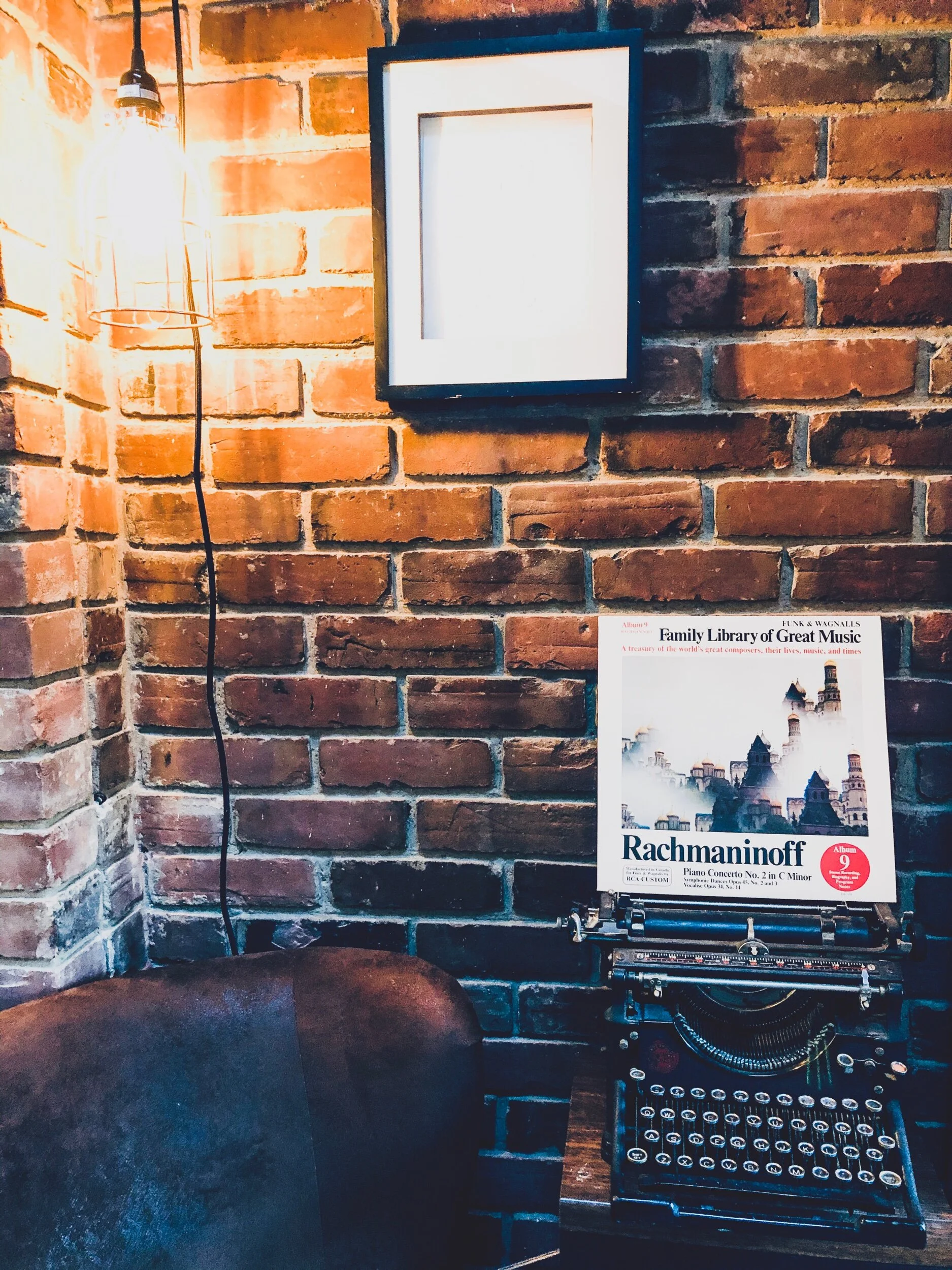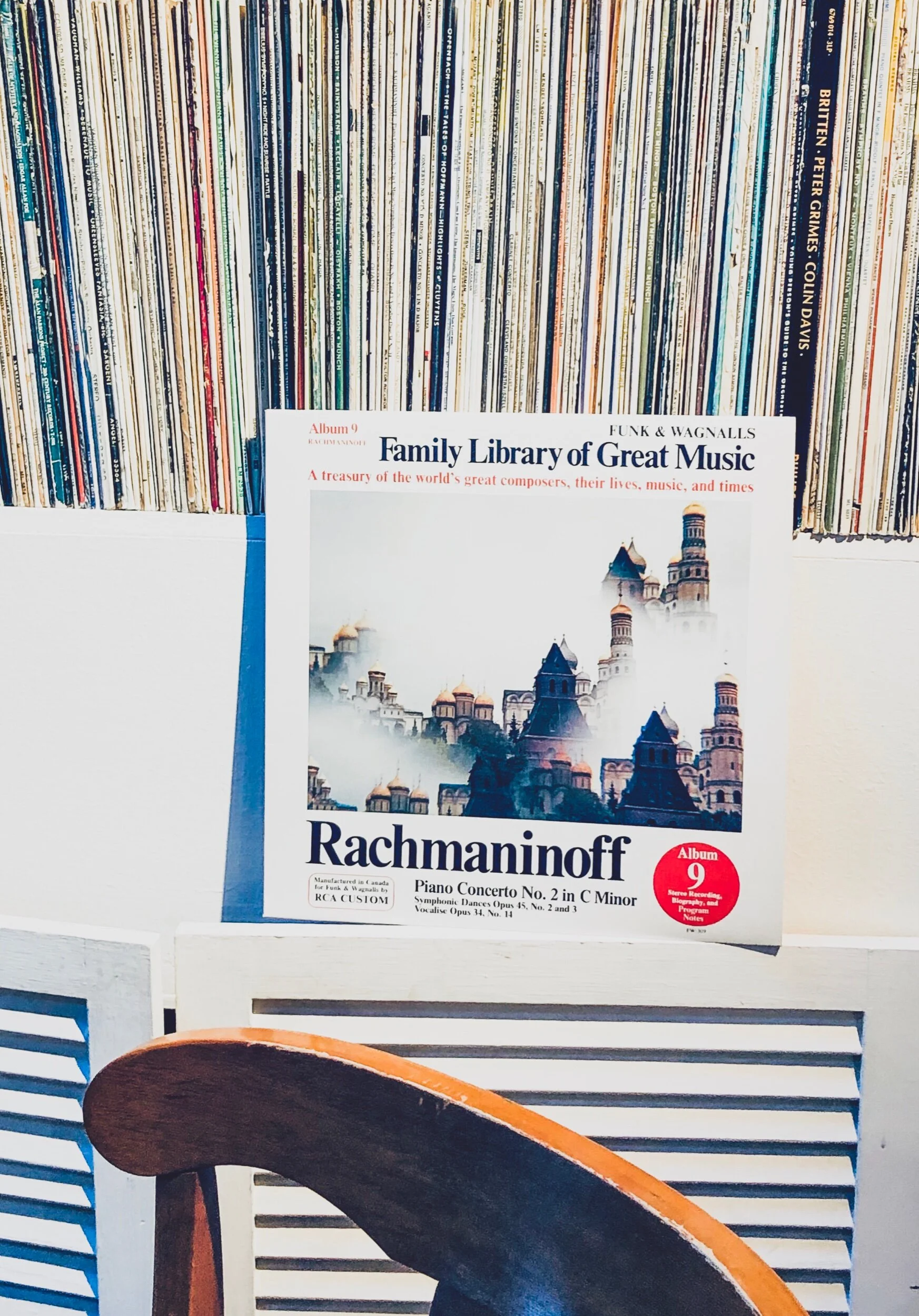(program)
Funk & Wagnalls Recording. Printed in the USA // Sergei Rachmaninoff (1873-1943) // Piano Concerto No.2 in C Minor
Vienna State Opera Orchestra, Conducted by Michael Gielen. Pianist: Felicija Blumenthal
Piano Concerto No.2 in C Minor
- Moderato
- Adagio sostenuto - Piu animato - Tempo 1
- Allegro scherzando
Music here was a terrible narcosis, a sort of intoxication and oblivion, a going off into irrational planes. Drunken mysticism, ecstatic sensations against a background of profound pessimism permeating existence. It was not form or harmoniousness or Apollonic vision that was demanded of music, but passion, feeling, languor, heartache. Such was Tchaikovsky’s music and such also was what the music of Rachmaninoff developed into. “”leonid sabaneyeff, Sabaneyeff
I heard the same hypnotic formula repeated day after day while I lay half asleep in an armchair in Dahl’s study: ‘You will begin to write your Concerto...you will work with great facility...the Concerto will be of excellent quality…’ It was always the same, without interruption. Although it may sound incredible, this cure really helped me. At the beginning of summer I began to compose again. The material grew in bulk and new musical ideas began to stir within me——more than enough for my concerto. “” sergei rachmaninoff, 1900
profound pessimism in classical music, is perhaps something that’s only possible when that ‘terrible narcosis’ has been injected into the scientification of music that characterizes the genre. the russian composers in this catalogue seem to be very comfortable with such dolorous proximities, rachmaninoff’s case is a bit more pointed…
Perhaps it is that I am lazy; perhaps the incessant practice and eternal rush inseparable from life as a concert artist takes too much toll of my strength, perhaps I feel that the kind of music I care to write is not acceptable today. And perhaps my true reason for adopting the life of an interpreter rather than that of a creator in recent years is none of these. For when I left Russia, I left behind me my desire to compose: losing my country I lost myself also. To the exile whose musical roots, traditions and background have been annihilated, there remains no desire for self-expression.“” sergei rachmaninoff, november 1934
the second movement of this concerto is one of my favourite pieces of piano music. the liquidity of its melodic lines, as if the keys are no longer independent of each other but roped together in concentric rivulets. i suspect that somewhere in the editing process rachmaninoff must have added more muscle and volume to the opening notes of the Moderato, if only to emphasize the contrast between it and the ones that open the second movement. the movement is introduced by a brief swell of strings that calm the waters enough for the solo instrument to wade into the scenery with gentle, hesitating strokes. the orchestra is barely audible for much of the opening segment till a warm breeze invites the main subject on principal flute, a clarinet echoes the melody and the piano takes the background as parts of the wind section develop the main theme. the middle section adds more volume to the orchestra and the closing segment of the movement returns to the tete-e-tete between piano and wind instruments, this time beginning with bassoon and thereon to trombones and trumpets to lead into the string-heavy finale, Allegro scherzando.
(song of the week: U (Man Like) - Bon Iver)
What is a song? It is not a science, in which I make a mistake and would be struck down by a marabout [Islamic Scholar]. “” tuareg proverb
iiiiiiiiiiiiiiiii
iiiiiiiiiiiiiiiii
iiiiiiiiiiiiiiiii
iiiiiiiiiiiiiiiii
iiiiiiiiiiiiiiiii
i’m coming to the realization that Bon Iver might very well be the artist of my lifetime. it’s been a decade since For Emma and the feeling persists, intensifies, the feeling that their music is a kind of headlamp, on its way to something. the latest album, i,i, feels the least clutched, a freeness to it, the plaything of artists that no longer believe in mistakes. yes, artists——it’s no longer just the solar solitude of justin vernon with an acoustic. the doors are flung wide open, the roof too...where once their music was a man singing i, over and over (‘all this phallic repetition’), it is now a barn of hands pitching in for something truly special.
i,i - Bon Iver, cover jacket art
i used to be incapable of speaking about Bon Iver without clasped hands, it was something clutched and personal, that changed with this album, it’s an arms flung wide open experience; a generosity of spirit that looks elsewhere from the i.
i started this blog because i wanted to get better at talking about music, Bon Iver’s music in particular: or any kind of music that generates the feeling that its searching for something. i wanted to get better at describing that searchingness.
i think this blog too has changed much in the last two years, and the best instances of that has come with the ability to host other voices on here. and this is the trend i want to continue, to be more a barn of hands than a solitary and clasped/clutched pair. i believe it’s impossible to abolish the i——we’re not only a thing that says i but also does i (nietzsche)——but one makes up for that by adding a little elsewhere to the equation, what is typically referred to as we.


